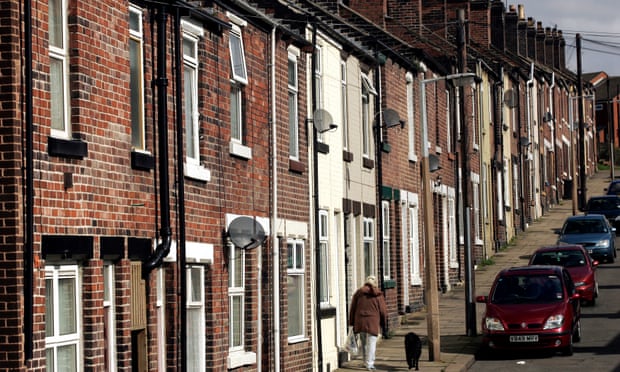Almost £3,500 was added to the value of the average house during April after the property market enjoyed a spring boost, according to official figures.
The data, which shows that annual house price inflation has risen to its highest level since last October, runs counter to reports from mortgage lenders and others that the market was slowing down.
According to the Office for National Statistics (ONS), the average house price in the UK increased by 5.6% in the year to April – up on the 4.5% rate recorded the previous month – to reach £220,094. This was £3,491 higher than March’s figure. However, in some parts of the UK growth was stronger: the average house price in Scotland surged by £8,000 during April, rising from £138,000 to £146,000.
Other surveys have suggested the market was running out of steam. Earlier this month, Nationwide building society reported that house prices fell 0.4% in April and 0.2% in May. Meanwhile, many economists have said they expect the housing market to weaken this year, as the impact of the Brexit vote weighs on the economy.
The ONS appeared to acknowledge this, sayingthat while April had seen an increase, “there has been a general slowdown in the annual growth rate since mid-2016”.
Its data does show, however, that the average UK home had risen in value by almost £12,000 in the space of a year. In London the typical house price is £482,779, which was £3,200 up on March.
The most expensive place to buy a home during April was the London borough of Kensington and Chelsea, where the average price-tag was £1.4m, while the cheapest area was Burnley, where a typical house cost £76,000.
One of the UK’s biggest house price increases was in Dartford, Kent, where the average value jumped 13.1% in a year to reach £306,405, the ONS said. This may reflect its popularity with homebuyers who work in London but have been priced out of the capital. Only the Orkney Islands produced a higher annual growth figure – 24.1% – but the government department said this was an area where low numbers of sales can lead to volatility.
Another area in the ONS’s “top five” is the district of Chiltern in Buckinghamshire, which includes the commuter towns of Amersham and Chesham, where annual growth was 13%, while Rutland in the East Midlands rose by 12.8%.
Russell Quirk, founder of estate agent eMoov.co.uk, said: “The latest government data seems to portray a healthier market than other industry sources on the surface, with the monthly rate of growth bucking the downward trends seen in the previous month to climb 1.6%.
“That said, transactional volume was down on a month-on-month basis, and it is reported that both buyer and seller demand dwindled – no doubt a knee-jerk reaction to the news of a snap election.”
Richard Snook, senior economist at PwC, said the figures “go against the recent trend of a Brexit-related slowdown that we predicted last year, but remain consistent with our guidance of 2%-5% growth in 2017 as a whole”.
Jonathan Hopper, managing director of Garrington Property Finders, said: “Such a solid return to form suggests March’s sudden slowdown in price growth was a speed bump rather than a stop. But even so, the property market remains in low gear with prices being slowly ratcheted up by the chronic lack of supply rather than any acceleration in demand.”


